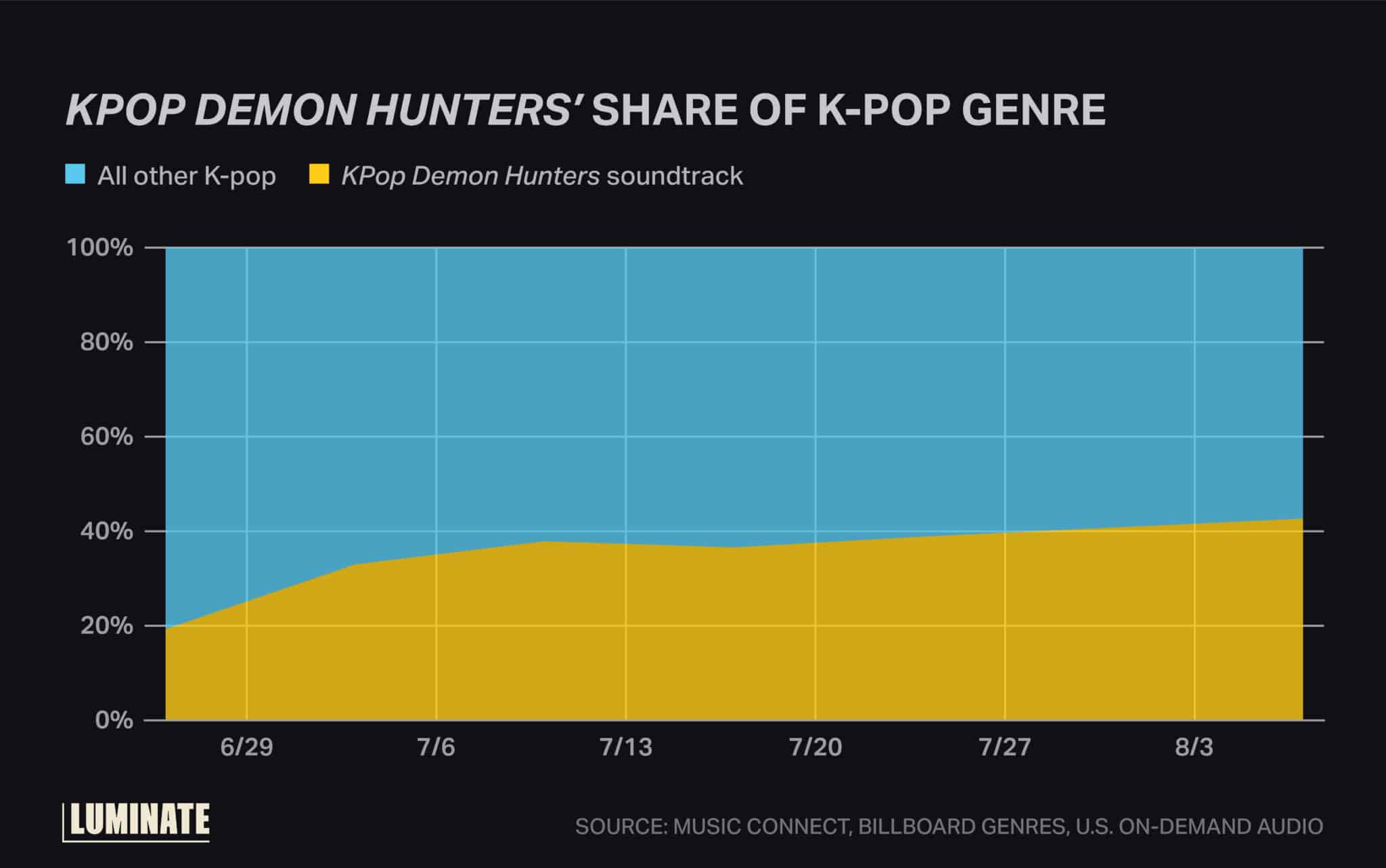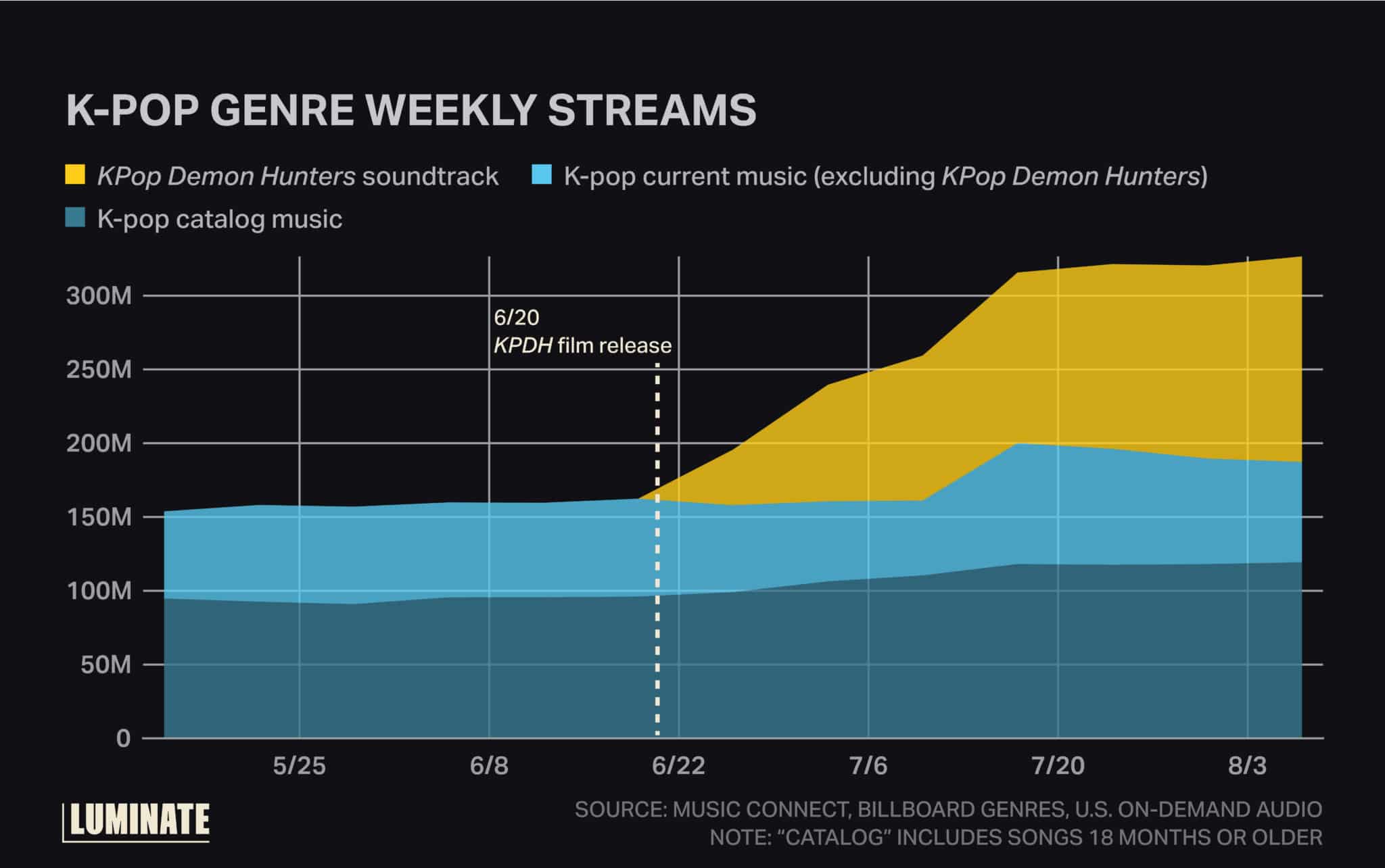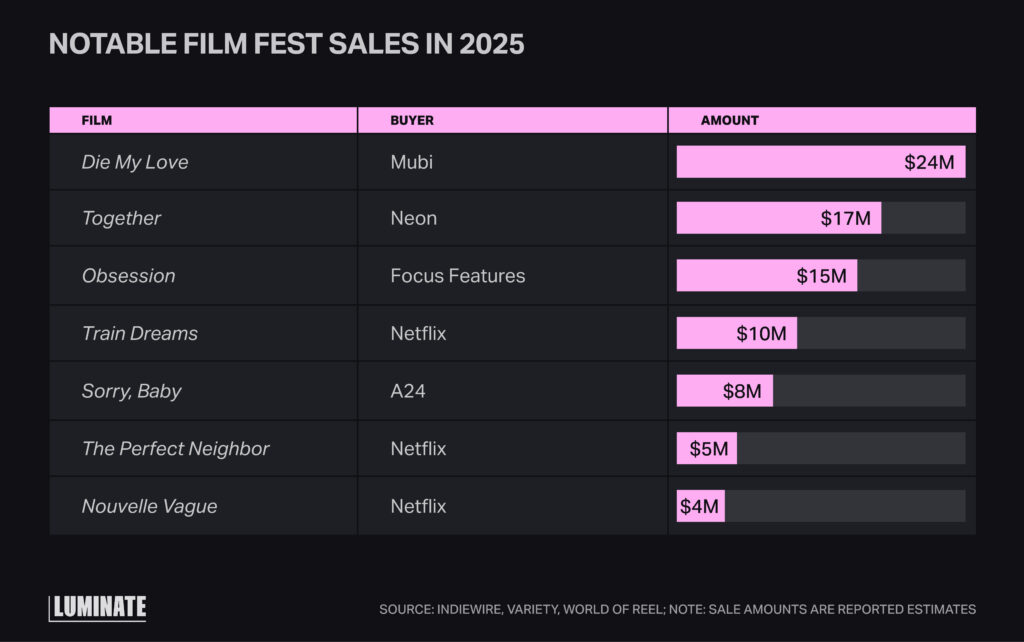Thanks to weeks of viral buzz, KPop Demon Hunters has not only become the most-watched animated movie of all time on Netflix, but the soundtrack is a bona fide hit, led by the film’s fictional girl group HUNTR/X’s track “Golden,” which reached No. 1 on the Billboard Hot 100 earlier this month.
So, does the runaway success of KPDH mean K-pop is once again having a moment in pop culture? Well, yes and no.
There’s a chicken-and-egg dynamic at play here that makes it difficult to determine whether the KPDH breakthrough is the cause or result of the resurgence the genre has experienced lately. Either way, the film and soundtrack’s domination is positioning K-pop for its biggest cultural presence in years.
According to streaming data via Luminate Streaming Viewership (M), KPop Demon Hunters had a solid opening week on Netflix beginning with its release on June 20, at a cumulative 306 million minutes watched. And as the film packed on word-of-mouth praise from K-pop fans online, it has notched a steady rise in daily watch time since then.

Concurrently, global On-Demand Audio streams for the KPDH soundtrack propelled it to No. 2 on the Billboard 200 for the week ending Aug. 7. Even more impressive, the soundtrack is single-handedly responsible for around 43% of U.S. K-pop streaming volume as of Aug. 7 as well.

But that split highlights a curious dynamic underlying the KPDH boom: Its command of such a considerable share of the K-pop market indicates it hasn’t had much of a halo effect in leading new fans Netflix brought to the genre to sample other K-pop artists. Songs from the soundtrack are also pulling notably higher daily stream counts in the U.S. than both current and catalog (18 months or older) K-pop tracks.
Nevertheless, it’s clear KPop Demon Hunters is a full-blown phenomenon — but why, exactly? The short answer is probably thanks to a combination of its ability to tap into a passionate fanbase and its release at the perfect time.
KPDH happened to drop amid a particularly eventful summer for K-pop. Along with new albums from such mainstays as TOMORROW X TOGETHER, ATEEZ and TWICE, two of the biggest groups in the genre — BLACKPINK and BTS — are staging comebacks.

BLACKPINK launched a world tour in July, after each member took some time to focus on solo work, while boy band phenom BTS announced plans that month to return with their first new album and tour in three years since completing their South Korean military service.
K-pop listeners have a reputation for being some of the most fervent fans in all of music, and Luminate’s U.S. Music 360 survey data backs that notion. U.S. K-pop followers listen to around nine additional hours of music a month compared with the U.S. general population, and they are 89% more likely to be Super Fans, meaning they regularly engage with their favorite artists in five or more ways.
Additionally, K-pop followers widely look to movies and anime as sources of music discovery, and they’re eager to share those new finds with family, friends and on social media. In other words, they were exceptionally primed to enjoy and champion an original movie about a demon-slaying girl group (57% of U.S. K-pop fans are women, according to Luminate survey data).
In the midst of this reinvigorated hype in the K-pop world, KPDH came out of nowhere and became a slow-burn hit. And with a special theatrical run planned and multiple sequels in the works, we’re likely going to continue seeing animated trio HUNTR/X dominate the charts alongside BTS and BLACKPINK over the next year.

